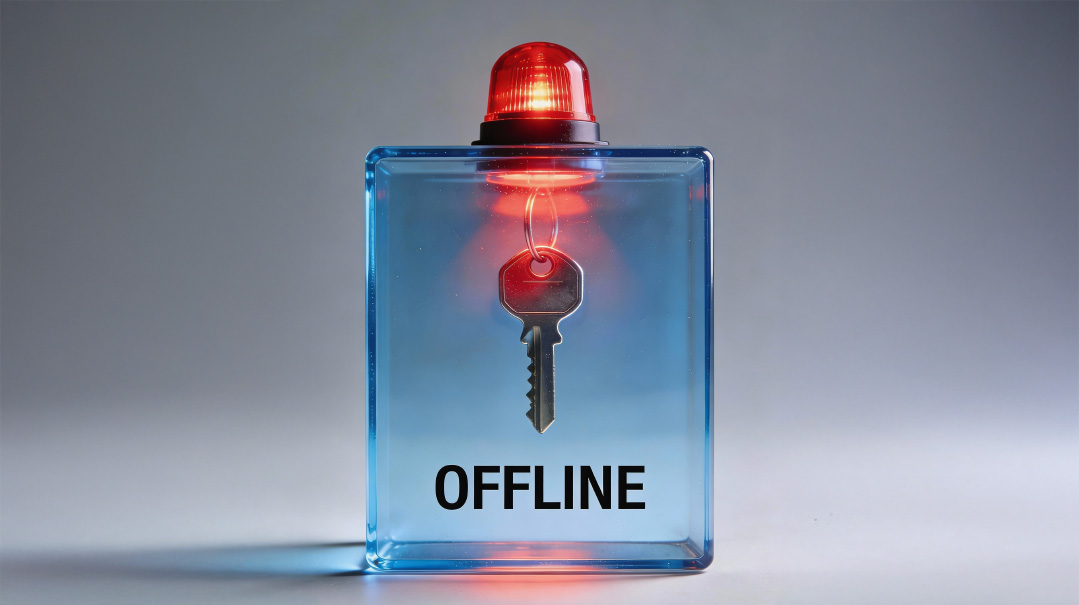His Best Interests

Did the eighth-grade rebbi shut my son out of high school?

Yaakov:
Why did you torpedo our son’s chances to get into the right yeshivah?
Rabbi Weissman:
I can’t in good conscience recommend a child to a school that isn’t the right fit.
Yaakov
I
went to yeshivah in the days before “the system” had everything neatly compartmentalized: this yeshivah for alef boys, that yeshivah for the academically weak, a third for boys struggling with Yiddishkeit. My parents picked a high school for me simply for its location; two blocks away from our home meant I would be able to avoid dorming. The yeshivah catered to the academically inclined, while I was anything but. Still, I have good memories of those years. The rebbeim were dynamic and clearly loved what they did, the other bochurim in my shiur were good guys who still knew how to have a good time, and I managed to tread water for the most part while saving most of my pent-up energy for Friday afternoon ballgames.
I went to work before I got married, which my parents took in stride. “The main thing is yiras Shamayim and being a mentsch,” I remember my father saying firmly when I talked to them about leaving yeshivah. They were happy I had good friends and a solid grounding in Torah hashkafah; my career track was secondary.
As the years passed, Shifra and I tried to raise our children the same way: to value middos and yiras Shamayim, whatever path they would choose to take in life. Somewhat to my surprise, our first two sons, Avraham and Bentzy, both did extremely well in school, taking to Gemara like fish to water.
“Where do they get their brains from?” I wondered aloud one day, when the boys left to Maariv together, seforim tucked under their arms.
Shifra laughed comfortably. “Well, neither of us, that’s for sure.”
I chuckled; my wife wasn’t the academic sort either, though she was a super-talented graphic designer with a strong reputation. Like we always said, there are many types of intelligences, and even though the academic types get the most appreciation in school, life gives everyone a chance to shine at what they do best.
Mordy, our third son, was more like me. He didn’t enjoy school, though he was the star of the baseball field. His test marks showed 70s more often than not. Shifra and I encouraged him to develop his other talents, reminding him that middos and e rlichkeit were what counted, and that the main thing was to do his best. The rebbeim in his elementary school were understanding, although some of them expressed their surprise to me at PTA — they’d been expecting him to be more like his older brothers.
And then came eighth grade, and the big high school question.
“What’s the question, exactly?” I asked Shifra, when she first brought it up. “What’s wrong with Yeshivas Derech HaTorah? Avraham and Bentzy are shteiging away, it’s a great high school… if it ain’t broke, don’t fix it and all that, right?”
Shifra shrugged. “Just because the older boys went there doesn’t mean it’s for Mordy. He might need something more… accommodating, less pressure, you know.”
I peeked outside; Mordy was shooting hoops in the backyard, tzitzis flying, white shirttails loose. Yoni, one of the neighbors, wandered over. He was in the Other Yeshivah —known for its slower-paced learning and more “chilled” crowd. I noted his trendy haircut and brand-name T-shirt.
I didn’t want Mordy lowering his standards like that.
“Listen,” I told Shifra. “I don’t care if he doesn’t ace Gemara class. I don’t even care if he barely learns for four years, as long as he’s with good company and absorbing good values. Yes, the other yeshivah has more specialized attention, he’ll learn a bit better, maybe yes, maybe not. But it comes with a price tag — the distraction, the influences, the guys with no inclination to learn. Mordy’s innocent, he’s sheltered, we’ve raised him that way. I’m not ruining it now.”
Shifra joined me at the window. She looked from Mordy to Yoni and back again.
“You’re right, Yaakov, one hundred percent.”
But if my wife was behind me, it felt like no one else was.
Mordy’s rebbi chose his words carefully that night at the PTA. “So, there are baruch Hashem so many wonderful yeshivah high schools these days, it’s mamash gevaldig, not like in the past, everyone shoved in one box, right? It’s a techiyas hameisim for those boys who need it, mamash a life saver, they’re struggling with the Gemara, with the learning, it’s losing its sweetness, and finally there’s a school that caters to their needs. I’m telling you, Reb Yaakov, between you and me, some of those boys in the yeshivah that’s a bit less rigorous and academic, they’re the ones that end up shining.”
I listened politely, and finally managed to say my piece. “Rabbi Weissman, Mordy loves your classes, you’re a fantastic rebbi, we appreciate everything. I hear what you have to say about high school, but my wife and I have already come to a decision on that.”
Rabbi Weissman tilted his head to the side, curious. “Oh, that’s great. Can I ask you what decision you came to?”
I didn’t have to tell him, but I figured we had nothing to lose. The yeshivah would be asking him for his take on Mordy, in any case.
“Derech HaTorah. Our other sons are very happy there, and we appreciate the standards of yiras Shamayim and dikduk halachah there.”
His eyebrows shot up. “Derech HaTorah? Ahh. I see.” Rabbi Weissman took off his glasses, wiped them furiously, then held up a hand. He opened and closed his mouth once or twice, then decided to plunge in. “Look, Reb Yaakov, it’s great that your sons have been happy there, and your values are beautiful, but you know how important it is to look at the individual child… and you know Mordy has struggled to keep up with the class, especially when it comes to Gemara. Would it be fair to him to place him in such a high-pressure environment, considering his abilities? He’d be doomed to failure there.”
I didn’t feel that I had to defend my approach to the rebbi. Besides, the way he’d written off my son as doomed didn’t sit right with me. So what if he doesn’t star in the classroom? Does failure in high school Gemara class mean you’re worthless? Does it mean you have to spend those critical high school years with a crowd that has much lower standards in ruchniyus?
“I hear you,” I told Rabbi Weissman, struggling to stay calm. “But this is a decision we’ve discussed for a while, and we’re confident that it’s the right place for our son.”
“Does Mordy also feel that way?” Rabbi Weissman pressed. “Sometimes, parents assume that a child feels a certain way, but really, they haven’t spoken it through with him… it’s kedai to talk to your son about this.”
Now I was really angry. “I appreciate your concern and advice,” I told him through tight lips. “My wife and I, of course, are doing everything that’s necessary for our son to do well, b’ezras Hashem.”
Weeks later, when the application was safely deposited at Derech HaTorah, Rabbi Weissman called me up at home.
“Reb Yaakov, please, a few minutes of your time, b’seder?”
I closed the door of the study. “Yes, what can I do for you?”
“Look, it’s like this.” Rabbi Weissman coughed a little. “The yeshivos, they want references, they need to know about the boys who applied. Fair enough, right? The thing is, I can’t lie. Your son Mordy is a wonderful boy, full of energy, simchas hachaim, good middos. If that was all that Derech HaTorah wanted to know, he’d ace it. The problem is, it’s not.”
I sat down heavily and leaned back in my chair. “What are you trying to say, Rabbi Weissman?”
Rabbi Weissman sounded apologetic. “I’ll be straight with you. It’s a real sh’eilah, can you bend the truth for the sake of helping someone out. But it’s also the reputation of our school, can they trust us to be honest with them, are we giving misleading information. Derech HaTorah wants the top learners, they don’t want us playing games with them. I can talk about Mordy until I’m blue in the face, but l’maaseh, if they don’t hear that he’s an ilui, that he’s at the top of the class, they’re not interested.”
My heartbeat quickened. We’d applied only to Derech Hatorah. I’d paid a hefty application fee and we had no desire to start begging other mosdos after the application deadline. Mordy had to get into the yeshivah that his brothers went to. For goodness sake, what about my son’s feelings?
“Rabbi Weissman,” I said, in what I hoped was a reasonable tone. “I hear you. Fine. He’s not the class lamdan, he’s not super bright and academic, fine. But surely you can gloss over that, focus on his good points, the effort he puts in, that maybe he struggles with test taking but in class his participation is great… you can say all that. The main thing is to push the yeshivah to take him, learning aside. We want him to go to this yeshivah for its hashkafos, not so he can become a star learner, that’s a side issue. Surely you care for his growth and happiness; we’re in this together.”
I was happy with my last line; it placed the ball right back in his court. But apparently, we weren’t so together in it, whatever it was.
Two weeks later, Mordy received his rejection letter.
Shifra and I were beside ourselves. How could the school do that? How could the rebbi do that? How could the school abuse their power to force their own ideas on a student, against what his parents felt was best? Didn’t they have a sense of responsibility, didn’t they understand how they could ruin a child’s future?
When I watched Mordy deflate at the rejection, I felt like I was burning inside. When we pushed and begged and pulled strings to no avail, I knew exactly where to lay the blame.
“Your son may be a wonderful boy, but he’s not the right fit for our yeshivah,” said the administrator, oh-so-politely. Had he forgotten our two older sons, our longstanding good relationship with the yeshivah, all the positive references we’d sent to plead on behalf of Mordy? Okay, he was less academic, but really, really? Is that all that matters?
“It’s not going to work,” an acquaintance who worked in the office of Derech HaTorah told us. “The yeshivah only takes boys recommended by the eighth-grade rebbeim. They want the top learners, they’re an ‘alef’ yeshivah, that’s the beginning and end of it.” He sounded apologetic, at least. “I didn’t make the rules, and I’ll admit it can get ugly, especially in your case, when the brothers are both there. But it’s probably better for you to focus your energies elsewhere, try apply to other yeshivos. You don’t want to end up with nothing.”
Left with no choice, we gave in. We looked into other yeshivos, even a couple further away from home, hoping to find one with less rigorous academic standards but still the positive peer influences that we hoped for. But most of them had long waiting lists. In the end, we had to lower our sights and see, simply, which yeshivah would be willing to take our son. Eventually, Mordy was accepted to Beis Shimon, the yeshivah that the neighbors sent their son to. “Good choice,” commented Mr. Meyer, Yoni’s father. “Much less intense, none of that pushing the boys to be top all the time, lets them learn at the pace they can manage. Lots of sports and stuff, they let them chill. A good balance, I call it.”
Too much of a good thing, I called it. I watched the Beis Shimon boys on the streets; they seemed louder and less refined than their Derech HaTorah counterparts. They didn’t dress the same way, their language sometimes slipped into lingo I wouldn’t want my son using. They weren’t bad kids and they weren’t OTD or anything like that, they just were — different. It was a culture thing, an atmosphere more “chilled” and less intense, where the staff intentionally kept their expectations at a lower standard, instead of pushing the boys to excel. Yes, they seemed happy and relaxed and unpressured (too unpressured?!) but it came with a package, and that wasn’t the package I wanted for my son.
Mordy seemed at peace with the decision, though he didn’t talk much about it, especially in front of his older brothers. He plodded through the last few months of elementary school, sometimes more easily, sometimes with difficulty. Shifra and I prided ourselves on the fact that we didn’t let him know about the role his rebbi played in the yeshivah saga, so he continued his good relationship with Rabbi Weissman. But at his graduation, when the parents and sons swarmed round the eighth-grade rebbi to show their appreciation, I couldn’t bring myself to join them.
“Ta, there’s Rebbi, wanna go thank him?” Mordy tugged at my hand. He was beaming, a proud graduate, and my heart ached for him and what he might become.
“Nah, we’ll leave it,” I told him, surprising both of us with the bitterness in my tone. “Let’s go find Ma.”
If I could tell Rabbi Weissman one thing, it would be: Our foremost concern is our son’s future — why did you torpedo his chances?
Rabbi Weissman
When I was promoted from sixth-grade to eighth-grade-rebbi, I didn’t realize how different my job description would be. Eighth grade, I quickly learned, wasn’t just about that one year; it included the headache — and joy — of seeing each boy through graduation, and set for the next stage.
The menahel, Rabbi Licht, is adamant about our responsibility toward the boys. “We don’t wash our hands of them at graduation — goodbye, have a nice life,” he told me again and again. “We’re preparing them for a future, and we have to make sure they have where to go from here. That they’re set on an upward path. Lechu v’neilchah b’ohr Hashem.”
In theory, it sounded wonderful. Except I soon found out what it meant for me: endless phone calls to yeshivos, references and protektziya and pushing, researching options, speaking to the boys, speaking to their parents.
That last being, in my opinion, the most complicated.
What to do when a mother insists on her son being “less pressured” and sending him to a less academic yeshivah when he’s getting high 90s on tests without trying? How about the bright boy from the BT family who keeps on getting rejected “due to lack of space”? And then there are the ones like Mordy Weinberg. I knew it from the moment I met his father. Crisp shirt, conservative suit. Wristwatch that spoke of money. He was a successful businessman, I recalled, and Mordy was one of the popular boys in the grade: easygoing, friendly, good at sports.
“How’s my son doing?” he asked jovially. “He seems happy in your class, which is great. How’s the Gemara, he seems to be doing better this year….”
I wondered how to respond; Mordy may have been doing better since I lowered the standards and differentiated all his tests, but honestly, his learning wasn’t great.
“He tries his best,” I said, finally.
“And that’s what counts, right?” the father winked at me. “Look, I also found Gemara difficult, but still, yeshivah was a great time for me. It made me who I am. There’s more to life than hundreds on tests, that’s what I always say.”
I gave half a nod; I wasn’t sure where the conversation was going.
Mr. Weinberg leaned forward. “Look, between you and me, he’s not going to be a star in learning like his older brothers, but he’ll get through it, he’ll be fine. As long as he has the middos and erlichkeit and an appreciation for Torah, that’s the main thing.”
When he mentioned the older brothers — Avraham and Bentzy had both been my students — I thought it best to mention the question of yeshivos for next year. I phrased it carefully, deliberately vague, suggesting that maybe some of the boys need something less academic, something more geared to their level.
It seemed to me that Yaakov Weinberg was a little in denial about his son’s abilities, which was why I was surprised when he said, “Rabbi Weissman, Mordy loves your classes, you’re a fantastic rebbi, we appreciate everything. I hear what you have to say on the yeshivos, but my wife and I have already come to a decision on that.”
That was good news — proactive, forward-thinking parents were usually a good sign. Just to make sure, I asked him which yeshivah they had chosen. Personally, I felt that Beis Shimon was a great choice. I knew some of the rebbeim there, and how they worked to make sure that every boy could understand and learn at his own pace.
“Derech HaTorah,” Mr. Weinberg said proudly. I was taken aback. Derech HaTorah — that was the “alef” yeshivah, catering exclusively to top learners. Of course, the Weinbergs had two sons there already, but for Mordy, it would be a disaster. He wouldn’t stand a chance against the top masmidim of all the local elementary schools. It would be a blow to his self-esteem that he might never recover from.
I had to say something before it was too late. “Reb Yaakov. It’s great that your sons have been happy there, but you know how important it is to look at the individual child… and you know Mordy has struggled to keep up with the class, especially when it comes to Gemara. Would it be fair to him to place him in such a high-pressure environment, considering his abilities? He’d be doomed to failure there.”
It came out stronger than I’d intended, but I had to make the point. Setting a child up for failure couldn’t be an option. But Mr. Weinberg’s face shuttered, and I could tell that my attempts at persuasion had missed their mark.
The rest of the conversation was stilted, a waste of time. My mind worked furiously, trying to come up with a plan. How to prevent this mistake from happening? What would become of Mordy?
I was still mulling it over a few days later, as I watched the class working on a Gemara test. I genuinely liked Mordy, he was a geshmake boy with a lot of hartz. I eyed him as his brow furrowed, he wrote something on the test paper — a little hesitantly — then scratched it out forcefully. My heart ached.
What would a boy like that do in an environment like Derech HaTorah? How would he keep up with the likes of Tauber, who’d already handed in the test, and Brunner, who never got less than 105?
I couldn’t, just couldn’t let it happen.
At recess, I called him over.
“Mordy, how did you find the test?”
He shifted from foot to foot. “I dunno. Hard?”
“Yeah, it was a tough one,” I agreed. “You studied for a long time?”
He gave a nod-shake. “A little. I didn’t understand it so well. My brother helped me.” His eyes darted to the door; recess was a lifeline for this boy. I got to the point.
“Mordy, your father told me you’re already thinking of which yeshivah to go to, that’s great.”
He shrugged. “I dunno, my parents decide this stuff. My brothers like yeshivah, so I guess I will too.”
I wasn’t sure what to say next. If I would encourage him to go against his parents’ decision, it would backfire terribly. But I couldn’t, in good conscience, leave him to go through four years of struggle.
“And you’re happy, you’re not nervous or anything… it’s a big change, you know.”
He looked blank. “I dunno, it’s a nice yeshivah. I mean, isn’t it?”
I gave up on that conversation.
The next week, I missed two calls from the secretary of Derech HaTorah. I listened to the voicemail. The menahel wanted to speak to me: the usual, get information about the applicants — the standard. Derech HaTorah trusted our reports, and we were careful to give them absolutely honest information — it was the only way we could earn and maintain their trust. That way, when it came to a case like that sweet Berman boy, the one who kept getting rejected because of his complicated family situation, we could convince them that he really was a good fit for their yeshivah. Last I heard of him, he was a real star, top of the 11th-grade class and shteiging away. Now that was nachas.
But I was in a quandary about Weinberg. It was clear to me that as soon as I mentioned his low grades, it would be a no-go. And with his parents so insistent, it seemed that he hadn’t even applied anywhere else. The boy would be devastated.
As a last resort, I tried speaking to the father again. I called him at home, having rehearsed my speech carefully. I tried explaining the type of information I was being asked to give about their son, how I couldn’t deceive a mosad, how Mordy would be better off somewhere else. This time, I didn’t even discuss our difference in opinion about which yeshivah would be better for Mordy altogether — I had my opinion, but I didn’t think Mr. Weinberg was interested. Still, I did my best to explain that for purely practical reasons, they were better off putting their efforts elsewhere. Hishtadlus, they could call it.
But Mr. Weinberg wouldn’t hear of it. “Can’t you gloss over the academic parts?” he asked, a little impatiently. “He has so many good points. He puts in such effort. Fine, so he struggles with test taking, but maybe in class his participation is great — you can say all that. He’s your student, surely you care for his growth and happiness, we’re in this together.”
Of course I cared for Mordy’s growth and happiness. That was why I was losing sleep over his son’s yeshivah options. This Derech HaTorah application was a disaster waiting to happen.
With little choice, I called back the menahel the next day. I talked about Brunner and Druckman and Leibowitz and Tauber, all of them shoo-ins. And then it came — Weinberg, Mordechai.
I cleared my throat. “A wonderful, erliche boy,” I began. “Middos, popular, friendly. The boys love him. He’s great on the ballfield. Sincere, well-meaning, tries hard.”
The menahel coughed. “That’s nice… very nice. And what about his learning?”
I thought of Mordy’s sweet, innocent face. “He tries hard,” I said, honestly. “He — isn’t the top of the class, though.”
I could hear suspicion sharpen the menahel’s voice. “Rabbi Weissman, please, be honest with me, you know what we’re looking for. Is the boy on the level? Is he a fit for our school?”
I couldn’t lie. “No,” I said.
The Weinbergs would be furious, but what choice did I have?
After a while, I heard that Mordy would be attending Beis Shimon. I was relieved; I had always felt it would be a better fit for his personality and abilities. I was hopeful that in an environment where they really catered to the individual, he might succeed in learning beyond his or his father’s predictions.
At graduation, I looked out for Mr. Weinberg. I wanted to leave off on a good note, wish his son well, give some encouragement that surely this would end up being the best choice for Mordy. But although I spotted him in the audience during speeches and let my heart swell when a beaming Mordy walked across the stage, by the time the evening was over he had disappeared.
(Originally Featured in Mishpacha, Issue 765)
Oops! We could not locate your form.













